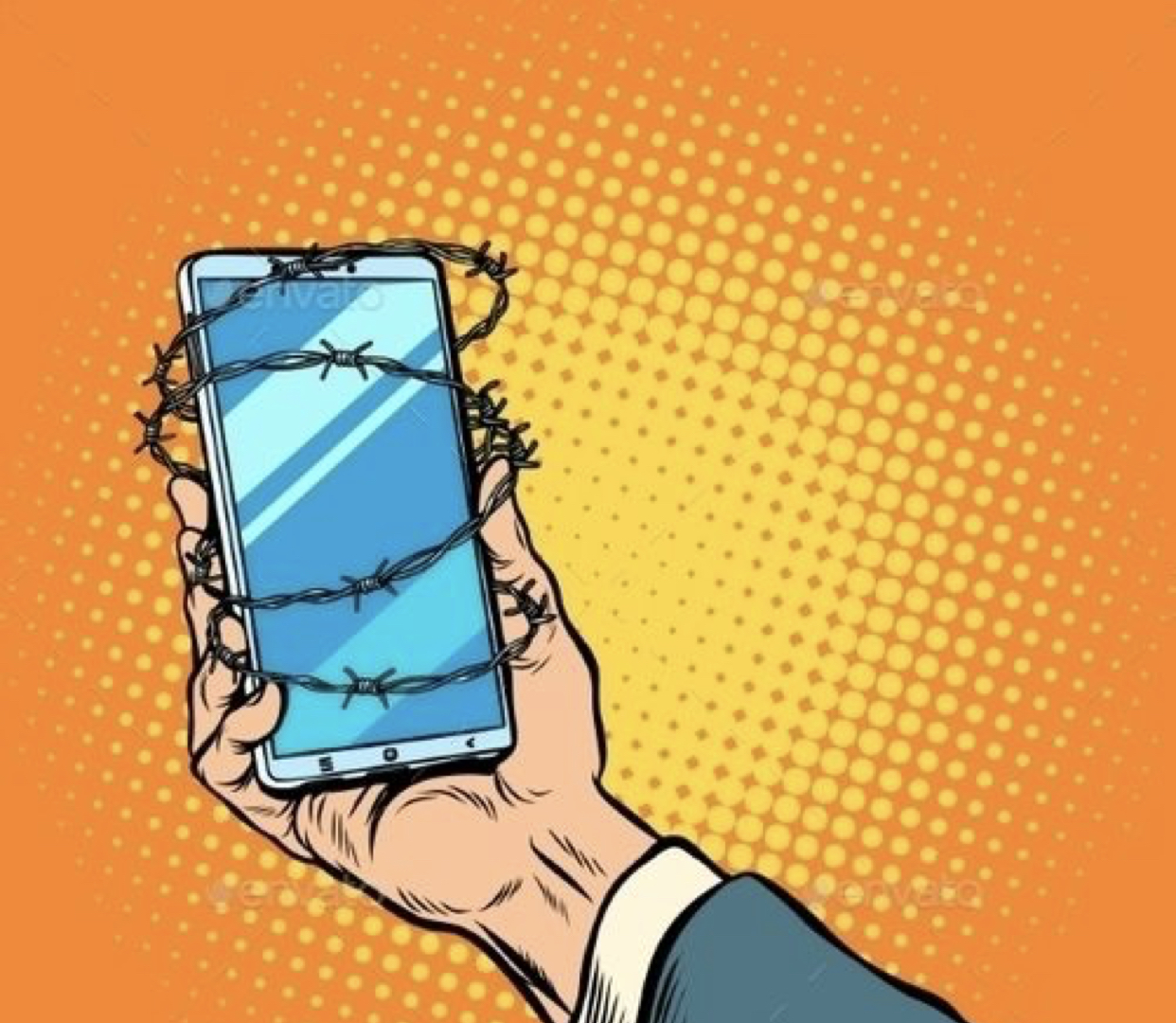We all remember the second half of 2017, us young people felt the strong need to remind our parents and aunties, who were acting like they could dictate our future, that young people actually make up the majority of the population in Liberia, and we were tired of watching old greedy people seek glorification for doing the bare minimum. We needed to show them that we owe no one gratitude for their frail attempts at being decent humans; everything being done was just as expected from our elected and appointed leaders. We wanted change, even if it meant “Change for Hope.”
We watched an old man, who could not be loyal to a system he had been a part of for 12 years, tell us not to trust the system that has brought us so far and that they are about to be “different.” Some of us were excited about the possibility of new that accompanied the international business mogul, who came home in his retirement, after spending his youth building and expanding other systems, as we thought he had enough external connections to bring the investments that would push us a few more steps forward. However, the concern was that he didn’t know enough people, nor did he understand our context, to be ready to hit the ground running. Most of us just wanted change, so we took the only “different” we were familiar with. Before us was a man dubbed as the “Diamond in the Dirt,” who had grown up in the slum communities and rose up to be the beckoning star and light in our nation’s football history. Most young people felt that since he had faced the hardships of growing up in the slums in Liberia, he would have the country at heart and would want to give his all to make our country great and prosperous. According to the eventual election results, the people of Liberia overwhelmingly voted him into office.
Almost two years down the road and counting, our country’s economy is at one of its lowest points; inflation is no longer creeping but galloping, prices are sky-high, the common people are greatly losing their purchasing power and the standard of living is on the decrease. Amidst all this, our government claims to be putting measures into place to tackle inflation as well as to increase revenue generation for the government in order to help the economy and the people. One of its recent policies that it has implemented is “The Harmonization Policy” which aims to harmonize salaries across the government.. Another measure which was put in place on September 1, 2019 by the Liberia Telecommunications Authority, set out to “cancel the unlimited 3 days free calls promotion,” which it deemed necessary to set price floors for the telecommunications companies in Liberia.
Ignoring the economic implications of this “New Floor Pricing” policy of the LTA, it is not hard to see how this might be another attempt by this government to block access to information by the common citizen. Article 15 of the 1986 Liberian Constitution protects individual access to information, while the 2010 Freedom of Information Act, passed by the Liberian National Legislature, also protects citizens’ right to access public information. However, the same President Weah who submitted a bill in June 2018 to repeal laws against free speech is the same person who in June 2019 said “insult the President and be dealt with.” According to the Liberia Telecommunications Authority (LTA), the new policy (which cannot be found online till date) is an intervention “to stop [mobile network operators’] predatory pricing wars which have stifled sector growth and plummeted [government] revenue significantly over the last few years.” This clearly shows that this change is in the interest of the government (a government whose most efficient agency over the last two years has been the Liberia Revenue Authority, not the Ministry of Public Work, Liberia Water and Sewer Corporation, LEC or any Government hospital).
During the June 7 Protest, we saw the Government of Liberia also trying to sabotage citizen’s access to information by blocking off various social media platforms. Thankfully, people could still access these platforms through VPNs. Cognizant of the fact that social media and the use of internet data is the nation’s major source of information (formal and informal), it is a logical conclusion that this government has now found a more definite way to block our access to information. For example, the Daily Observer Newspaper (one of Liberia’s leading and oldest newspapers) has just 573 followers on instagram (compared to 337 on FrontPage Africa); while informal news sources like Chichipoly Room and Liberia Influence have followings of over 30,000). Now this government sets a regulation that changes the price of data from $1 for 1GB to $2 for 750MB or 1.2GB (depending on whether you’re using Lonestar or Orange), and we are sitting on our hands? Our parents took to the streets in 1979 for the hike in the price of rice, because the government played with their livelihood. Now is our time; we are the X and Y generations, our livelihood is the internet. We gave birth to Twitter, Facebook, Snapchat and Instagram. Why should we allow this government to hike the price of what we depend on, especially after they have already hiked the exchange rates, rice prices, and cut salaries under the disguise of “harmonization”?
To the Telecommunication Companies, we have just one question: how much would it cost to violate this new pricing policy? Aside from the fact that Orange tried to repeal the policy by going to the supreme court on the basis that LTA didn’t have the right to implement this, what did the Telecommunications Companies actually do to fight this injustice? Knowing fully well, based on their data and statistics, that this policy will not only affect the Liberian people but also affect their very revenue streams, what did they do that can actually tell the Liberian people that they stood up for them and that they don’t only care about their income but they also care about their customers’ well-being too?
Let’s bring to your attention quickly to how this new LTA policy really affects the Liberian People:
- Students: In this 21st century, almost everything can be learned via the internet. In a third world country such as Liberia, that’s playing catch-up with other countries, it is essential for our students to have adequate access to the internet in order to do research, assignments and so forth. Our students’ performances on the National Exams are gradually showing signs of improvement, but our government couldn’t be happy about this but had to implement this policy which will clearly prevent the students from having access to the internet, and as such has the propensity to hit our educational sector hard.
- Businesses: Many businesses across the country are utilising the internet via social media to market their products, brands, etc in order to get customers and improve their revenue streams, which will also directly enable them to pay more taxes to government. With this new policy, these businesses will have to spend more money to get access to the internet, which will affect their budgets and expenses badly, and might also lead to them increasing their prices in order to account for the new costs, which will then seriously affect the Liberian People.
- Health Sector & The Common People: With our current poor health infrastructures and health services that are gradually trying to improve, people in both the urban & rural areas depend on voice calls to report health cases and emergencies at any point of the day. With this new policy in place, people will be prevented from actually having adequate credits to call and report cases and emergencies, which is detrimental to us as a nation because a healthy nation is a productive nation. Furthermore, the common people depend on these voice and data packages to be able to communicate with their family members abroad end even locally. This policy will also serve as a hindrance to that too.
We could go on and on naming so many adverse effects of this policy on the Liberian People, but those are just a few to keep your mind buzzing on the subject. This is a serious issue and our government needs to realise very quickly that that move was a mistake and rethink its decision. For a government that came to power on the popular mantra of being people oriented and people based, it is indeed doing the opposite and harming the very same people that brought it into power.
We cannot sit, fold our hands and remain silent, for what good will our voices be if not to speak out in times like these? Let’s pressure our government to do the right thing, so we don’t have to go back to beeping the hell out of each other.
Authored by Joshua S. Kulah & Darcess Dossen


Well pinned article. Every decision has ramifications – our current ideologue is our problem and until Liberians acknowledge that we are doomed. Thanks so kindly for this piece…